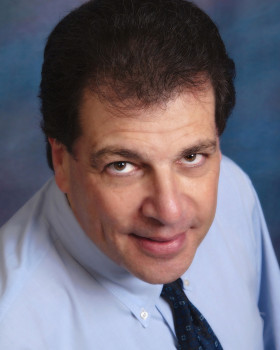By Mark Grossman
When I joined the South Country School District board of education a year ago, I would have never imagined having to support a budget that raises taxes nearly 10 percent while making some unpleasant cuts. But the reality is that double-digit tax hikes are necessary for us, and for many other school districts across Long Island, for a host of important reasons.
One of the main reasons is the new academic standards imposed by the state, a well-intentioned but costly initiative. These new state standards mandate lower class sizes and raise the academic bar, requiring all students — even those with special education needs and those who might have previously gravitated toward a vocational learning track — to pass State Regents exams for graduation. Higher standards are great — but imposing standards across-the-board without the concomitant state aid can be costly.
Critics of Long Island’s relatively high per-pupil education cost conveniently ignore the region’s relatively high cost of living. Nassau and Suffolk have among the nation’s highest housing and energy prices, which affects the cost of delivering educational services. That’s why it’ s just not fair when critics compare education expenses on Long Island with those of upstate New York, let alone with the national average.
Last year’s so-called bare-bones budget was particularly painful for districts like mine that have a predominantly residential tax base and rely heavily on state aid. Districts with solid commercial tax bases were able to withstand the funding “hit” of 2001, but we, and many others, were faced with a big budget hole because we count on the state. Boards of education across Long Island had to do something very unpalatable: set higher tax warrants in the fall than originally projected in the spring.
Districts that sought to improve aging infrastructure have been doubly penalized. A few years ago, in an effort to encourage districts to upgrade their post-World War II school buildings, the state offered an extra 10 percent in aid for new construction and renovations. Here on Long Island — where much of the stock is now two-generations old, energy inefficient and unsuited for today’s technology — many districts used the incentive to renovate and rebuild.
Unfortunately for those districts, the state — in an effort to save money — changed the rules in the middle of the game in this year’s aid formula and stretched the building aid payback period, lowering annual building aid payments and driving up spending locally to make up the gap.
And now school budget voters are called on to make up the difference.
In a recent Viewpoints column, Matthew Carolan and Raymond Keating suggest that families who send their children to private and parochial schools vote “no” on public school budgets because they receive little “consideration” by boards of education [“How Taxpayers Can Have a Say on School Budget Day,” May 7]. If that’s the case, then those residents under 60 should “consider” withholding a portion of their county tax bill because they don’t use senior citizens services, or those with backyard pools should refuse to support tax money to maintain public beaches.
The reality is that public school funds pay for such things as private school transportation and textbooks. Failed budgets reduce the support available for all students — public and private. Plus, public schools are still the places that educate most students with disabilities and special education needs. That responsibility is, and should be, shared by all of society; not just those families who happen to be affected.
Those who threaten to withhold funding from poor performing schools have it all backwards. In the overwhelming majority of cases, poor performance is a result of inadequate funding. These schools need more resources and revenues, not less.
School districts define our communities in Nassau and Suffolk more than any other level of government. Good schools mean better property values. So, as painful as it may feel, it may very well be more cost-effective for taxpayers to bear a hike this year, than to see property values fall in the years to come.
Mark J. Grossman heads a Holtsville-based public relations firm. He serves on the South Country Central School District board of education.
Mark Grossman, Taxpayers Must Come to the Aid of the Schools. Newsday, 05-12-2002, pp A22.
